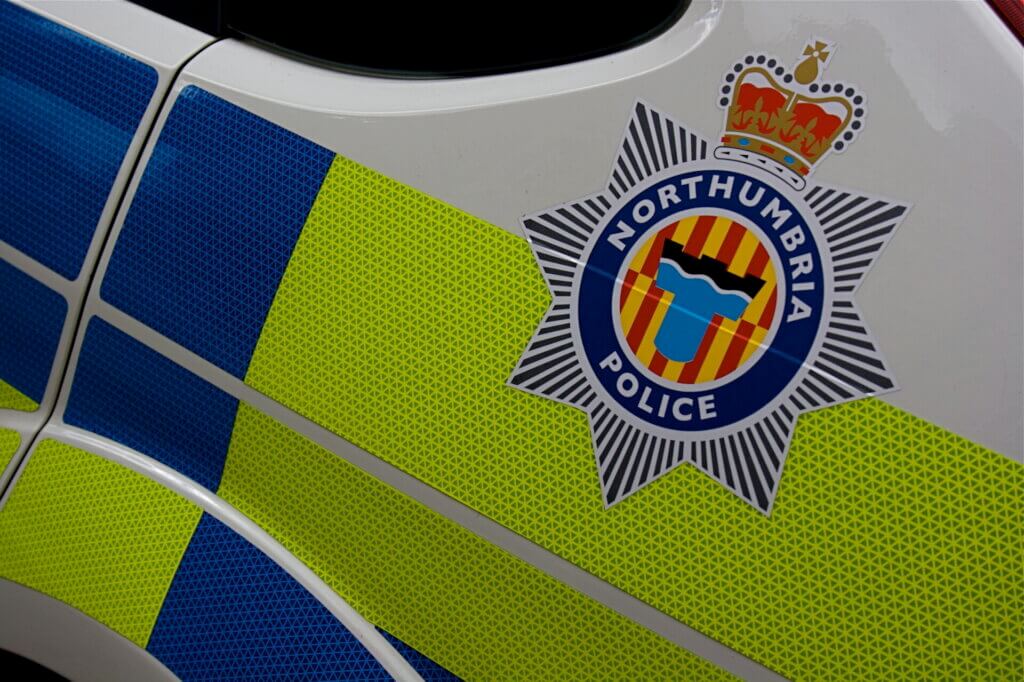North East trans activists join protests against digital ID cards
Written by Hannah Rooney on 2nd October 2025

The transgender flag with icon symbol inside.
Transgender rights activists in the North East are voicing fears that digital ID cards could harm trans and non-binary people.
At a conference of world leaders last Friday (September 26), prime minister Keir Starmer revealed plans for a digital ID card scheme which will be “mandatory for the right to work” in the UK, as part of plans to tackle illegal immigration.
The government claims the cards, which will have to be carried on people’s phones, will feature an individual’s name, nationality or residency status, date of birth and a photograph.
However, the trans community fears that gender information will later be added, risking ‘outings’ of trans-people and persecution through trans-phobic legislation.
A representative of Newcastle University LGBTQ Society said: “We cannot allow it [the digital ID scheme] to be used to identify, out, or harm our community.”
They added that digital IDs should not be a legal requirement, particularly when considering trans people.
Activists’ fears have been heightened by the appointment last month of the prime minister’s new executive director of communications, Tim Allen, because he is a former trustee of Sex Matters, an organisation which campaigns for the use of biological sex as opposed to gender identity when recording data, as part of the Data Bill.
Jess O’Thomson, a trans legal researcher, told the Lesbian, Gay, Bisexual, Transgender, Queer, Intersex, and Asexual (LGBTQIA+) media site QueerAF: “We know that anti-trans campaigning groups are looking for any opportunity to strip back trans people’s rights.
“I have no doubt these groups will push for digital ID to record ‘biological sex’, forcibly outing trans people.”
If gender is to be included on the ID, barrister Sarah Vine KC has said it would legally have to record biological sex at birth instead of gender identity, in order to comply with the Equality Act’s definition of ‘sex’.
Activists also claim that ‘outing’ trans people creates a risk of hate crimes and subjugation.
Previous fears had been voiced in the North East after gay and trans hate crimes in the region doubled across five years, from 2016-2021.
In 2023, Northumbria was among the ten areas with the highest average of hate crime reports per 100,000 people.
Trans people experience twice the rate of domestic abuse as non-transgender people, according to the Crime Survey for England and Wales.
Speaking to QueerAF, Keyne Walker, strategy director of TransActual, suggested Digital IDs could result in trans people being banned from accessing the bathrooms of their chosen gender.
Discussing digital IDs, the Trans Legal Clinic on Instagram said it “condemns this proposal as a grave threat to civil liberties, human rights, and trans people’s safety.
“Digital IDs risk forcing trans and non-binary people to carry documents that do not reflect their lived gender, exposing them to discrimination, outing, and violence.”
A general petition against the Digital ID system has already garnered over two and a half million signatures, opposing what is described as “a step towards mass surveillance”. There have been 4,718 signatures in Sunderland and 16,748 across all combined constituencies of Newcastle.
The government claims efforts are being made to make the digital IDs “inclusive” and “fair”, with a public consultation planned to discuss which further details might appear on the card – but opposition to the Digital ID system appears to be widespread and growing.







